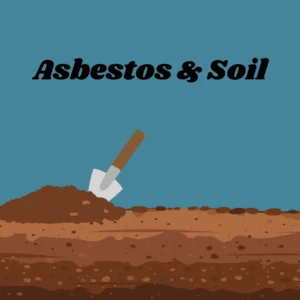Asbestos is made up of chrysotile, crocidolite, amosite, tremolite, actinolite and anthophyllite. Fibrous minerals that share features of asbestos are called asbestiform minerals. These include minerals like erionite, which is a Group 1 carcinogen. Chrysotile, crocidolite and amosite have been mined for decades. The other minerals that asbestos is made up of are usually found in the environment in rocks and soils. Many countries continue to mine, process and export asbestos. In 2019, an estimated 1.1 million tons of asbestos was exported. Usually, asbestos that is located in rocks and soils is in mountain or rural areas so does not have too much of an effect on people. However, certain activities can release the asbestos fibers in these areas into the air. For instance, activities like tunneling, remediation, land excavation and slopes reprofiling are some things that can release fibers to surrounding people.
Naturally Occurring Asbestos
NOA (naturally occurring asbestos) refers to asbestos that occurs in rocks and soils that have not been extracted commercially. Asbestos occurs naturally in the environment in many places. Some examples of this around the world are chrysotile deposits in the Appalachian Mountains in the US, in the Ural Mountains in Russia and in Canada, China, India, South Africa, Australia, Cyprus, Greece and more. Chrysotile asbestos is most commonly found in the natural environment and usually occurs in veins in serpentine rocks. Erosion as well as human activity can release these naturally occurring asbestos fibers into the air, which can in turn be inhaled by people. In fact, there have been studies showing that there is a connection between death from lung diseases and environmental asbestos exposure.
There are some arguments in the scientific community that it is safe to use chrysotile asbestos and that it has little chance of causing mesothelioma, however other scientists believe that all six forms of asbestos are highly dangerous and can cause a form of lung cancer if inhaled. This is why the International Agency for Research on Cancer defines them all as a Group 1 “substance carcinogenic to humans.”
Investigations
In Italy, a detailed investigation was conducted on the effects of rocks and soil in the Basilicata region and how they contribute to human health problems associated with asbestos exposure. In this instance, in almost all samples taken and observed, the values of asbestos were more than the regulatory thresholds for private, public and residential green use.
In the US, investigations have shown that amphiboles were in all states except for Rhode Island. However, asbestos materials in soils are poorly investigated compared to asbestos in rocks. If soil is used for agricultural purposes, this puts workers and those living nearby at risk of being exposed to asbestos. Additionally, because the fibers are so small, they can remain in the air for a while and travel long distances, putting more people in surrounding areas in harm’s way. If left completely alone the asbestos is not harmful in the soil, however the weathering of the soil can also release the fibers into the air. Different organisms have been shown to speed up the dissolution of metals from asbestos as well.
Recently, it has been noted that drinking water that contains asbestos can be harmful and can lead to asbestos-related diseases.
If you or a loved one has been diagnosed with an asbestos-related disease, please do not hesitate to call the Halpern Law Firm for a free case evaluation today. We are always available to take your call. We have over 30 years of experience and have won over $100 million for our clients.
Sources:
https://www.sciencedirect.com/science/article/abs/pii/S030438942200872X
https://www.episodes.org/journal/view.html?volume=43&number=3&spage=881&vmd=A

Written By Sadie Gold
Don’t Wait—Contact an Experienced Pennsylvania Mesothelioma Attorney Today!
Now that you know the mesothelioma statute of limitations in Pennsylvania, contact an experienced attorney from our firm to represent your case before time runs out.
At Halpern Law Firm, we help clients throughout Pennsylvania, with offices in Philadelphia, Pittsburgh, Allentown, Scranton and Johnstown. Call us today for a free consultation at (800) 505-6000.
